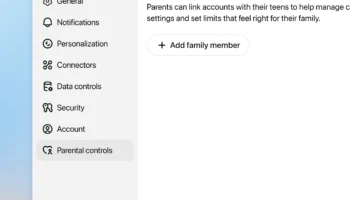Study: ID Thieves Prefer NYC and LA
If you live in New York, California, or Nevada, you have the biggest chance of being an identity theft victim. However if you're a Wyoming, Vermont, or Montana resident, the opposite is the case.
A study released Wednesday by security firm ID Analytics put those that live close to New York City or Los Angeles at the highest risk. Living in the West also seemed to increase one's chances: Arizona, Oregon, and Washington all ranked in the top ten.
IBM to Announce Breakthrough Caching Innovation at ISSCC
This morning, IBM confirmed to BetaNews that later this afternoon, its engineers are scheduled to demonstrate their own concept chip, which will utilize an embedded memory architecture for caching. The company is saying it could double the performance of existing 65 nm processors and future generations by tripling its cache memory capacity and perhaps increase the throughput of that memory tenfold.
The demonstration will take place at the International Solid-State Circuits Conference, where on Monday Intel demonstrated its own concept chip, whose architecture is based on the fabricator’s ability to stamp out multiple cores side-by-side as tiles. IBM’s counter-argument today may very well prove that core multiplication may not be the most efficient way to achieve performance gains.
Microsoft Settles Antitrust Case with Iowa
Microsoft has settled with the state of Iowa over charges that it had overcharged consumers for its products. Details of the settlement were not disclosed, although a court date has been set for April 20 where more information could be released. Half of the money received from the settlement would be used to "close the digital divide," attorneys for the plaintff say.
Iowa's lawsuit against the Redmond giant was one of the only to remain in the courts, as most have either been dismissed or settled thus far. Lawyers claim that Microsoft has overcharged Iowa consumers by nearly a half-billon dollars over the last 12 years.
HD DVD User Claims to Have Bypassed AACS Encryption
In a separate matter perhaps inspired by, but otherwise unrelated to, last December's discovery of how a software-based HD DVD player may have left title keys exposed, giving users access to one of the key components necessary for them to back up their content onto separate discs, another user has posted the source code that may enable HD DVD users to determine the title keys for themselves.
In tests over the past few days by users of the Doom9 Forum, people putting this software to use appear to have isolated and identified title keys for their HD DVD movies - the cryptographic components necessary for players, or for anyone, to decrypt content. So while this method is technically not an "AACS crack," as some have been led to believe, though which the source code's author himself has never claimed, if this method does lead to the identification of title keys, conceivably at least some users may become armed with the tools they need to back up HD DVD content without cracking AACS.
Microsoft Fixes Zero-Day Word Flaws
Microsoft on Tuesday released a bevy of patches, including three critical patches for the Microsoft Windows operating system, two for Office, and a critical patch for its antivirus and anti-malware software products.
Altogether, twelve patches were released, and the Redmond company finally addressed the issues within Microsoft Word and Office that were being exploited in zero-day attacks. Both Office patches dealt with code execution issues.
FBI Dealing With its Lost Laptop Problem
Although the FBI still seems to suffer from a problem of losing laptops, a new report indicates that the agency is getting better in keeping track of its equipment. During a 44-month period, the company either reported as lost or stolen 160 laptops. This is a marked decrease from the initial study in 2002, which found the agency lost some 317 units in a 28-month period from October 1999 through January 2002.
However, even with the improvement come concerns of data loss. As many as 51 of them possibly contained classified or sensitive information, with 8 of those confirmed to have held such data. In one case, a laptop contained personal data on FBI employees. In any case, the new report said "the FBI has taken steps to address weaknesses in physical inventories," although it recommended continued vigilance.
Yahoo Integrates IM into Web E-Mail Client
Following the lead of Google, which has integrated its instant messaging application within Gmail since February of last year, Yahoo on Monday added similar functionality to allow both functions within its web e-mail interface.
Similar to Google Talk within Gmail, conversations would take place in conversation windows within the interface. The feature would be rolled out slowly over the next several months to all users, said Ryan Kennedy, Yahoo Mail Beta Evangelist.
.NET Released for Embedded Devices
Hoping to extend the reach of its .NET application programming environment, Microsoft on Tuesday debuted a version that is intended for use in smaller embedded devices called ".NET Micro."
The platform could bring .NET into devices such as sensors, retail displays, and home automation systems. Programming for the platform would be available through Visual Studio, the company's signature programming suite.
OLPC Project Set to Ship $150 Laptops
The so-called "$100 laptop" has moved one step closer to reality, with 2,500 units set to ship later this month to eight developing nations. If the small test proves successful, mass production of the units would begin.
Dubbed the "XO" Laptop, the units actually cost $150 to produce, however within a year they expect the manufacturing costs to fall to the $100 figure first presented by supporters. By 2010, they expect the units to dip below the $100 price target.
TiVo Delivers Major Series3 Update
TiVo pushed a major update to a small segment of its installed Series3 base on Monday, bringing many popular new features of the Series2 console to the next-generation set-top box for the first time. The update will be made available to the entire installed base once it is ensured there are no problems with the update itself.
Among the added features are TiVoCast, which is the company's broadband video delivery platform; KidZone, a parental controls service; enhanced wireless security options; Product Watch, a targeted advertising delivery system; and the recently deleted folder, which allows for the recovery of deleted programming. The company said the update does not include two highly anticipated features: TiVoToGo or external storage. Work is continuing on those applicatons.
CEO: Mobile VoIP Won't Be a Huge Hit
The CEO of one of the world's largest mobile brands said Tuesday that VoIP on mobile phones would likely be as commonplace as it will become on PCs due to what he called 'technical issues.'
Issues such as the resolution of IP addresses of mobile users have not been completely ironed out, and mobile data remains quite expensive, Hamid Askhavan, CEO of T-Mobile International, said at the 3GSM World Congress.
StumbleUpon Ports Web Video to Wii
Web site recommendation service StumbleUpon said that along with the redesigned version of its video section that debuted Tuesday, it will begin offering a version of that portion of the site compatible with the Nintendo Wii's integrated Opera browser. Navigation of the site will be done through the controller, the company said, and will allow the user to search, view, rate, and recommend videos.
"Sending video from the web to the TV is something that no shortage of companies are doing or are seeking to do," technology pundit Michael Arrington said of the new service. "I've thought for some time that establishing content deals with hardware makers was the way to do this - but the more ways we see it happen, the more convinced I am that total openness is inevitable."
Sony May Pull Out of Cell CPU Production for PS3
One of Sony's senior executives, Executive Deputy President Yutaka Nakagawa, is quoted by several US and Asian press sources as saying that, in the interest of finding cost savings, his company is considering exiting the production end of the Cell processor business. Cell processors are produced by an alliance between Sony, IBM, and Toshiba.
Nakagawa was apparently cornered by reporters after he blamed Cell processor production costs for a 5% decline in quarterly profits for Sony's semiconductor division. Cell processors are currently fabricated using 90 nm lithography, and while plans have been in the works to move the chip to 65 nm, IBM is gearing to retool many of its operations for 45 nm, as part of its other partnership with x86 CPU producer AMD. IBM will have one of only two chip foundries capable of producing silicon-on-insulator (SOI) components such as Cell at the 45 nm level (the other is owned by Chartered Semiconductor), and IBM has already signaled its intention to use that foundry for 45 nm production as soon as next year.
Google Loses Belgian Court Fight
Google has been ordered by a Belgian court to stop reproducing news articles from papers within the country for Google News. If other courts follow suit, one of the most popular services for the company outside of search could be in jeopardy. Belgian courts first ruled in September that the site must remove such content. Tuesday's ruling upheld that injunction, as well as extending the order to Yahoo's French site. Fines of $32,000 per day would be levied if the order were not followed.
While Copiepresse, the publishing organization that brought the suit, sad it was satisfied with the outcome, Google expressed disappointment and said that it will look into an appeal of the judgment. In any case, the group that brought the suit said that it would still consider a licensing agreement, although it was up to Google to approach Copiepresse.
NVidia, AMD Battle to Turn Phones into Multimedia Platforms
With nearly every major consumer electronics device manufacturer lately having signed onto the notion that consumers everywhere are eager to watch CinemaScope movies on their cell phones and cell phone videos on their plasma HDTVs, the world's two principal manufacturers of graphics hardware are vying for center stage in Barcelona this week.
There, at the 3GSM World Congress, nVidia and AMD (we still have to get used to not saying "ATI") are making strong cases in favor of the convergence of all media, and that the center of that convergence is themselves.
Most Commented Stories
BetaNews, your source for breaking tech news, reviews, and in-depth reporting since 1998.
© 1998-2025 BetaNews, Inc. All Rights Reserved. About Us - Privacy Policy - Cookie Policy - Sitemap.




